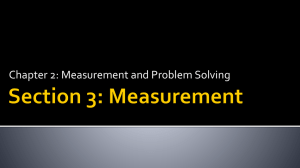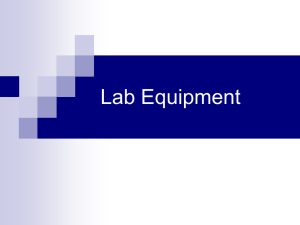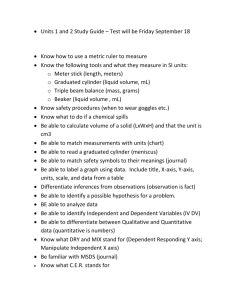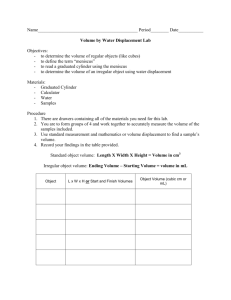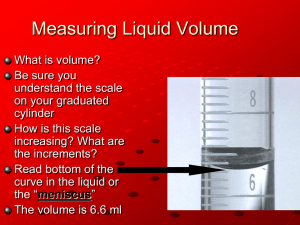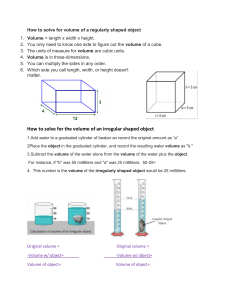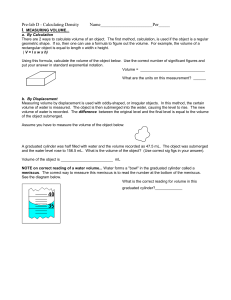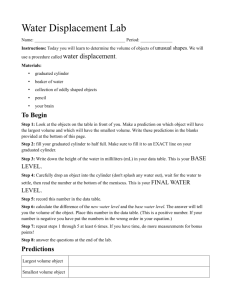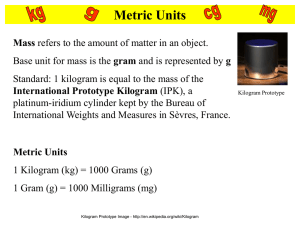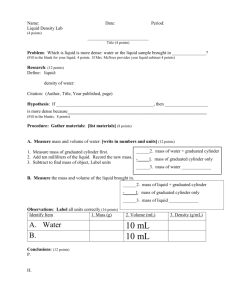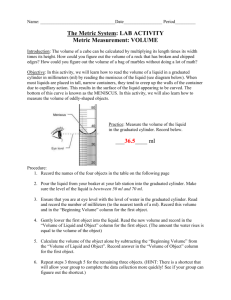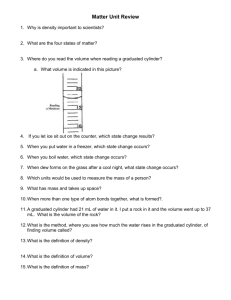MeasuringandScienceEquipment
advertisement
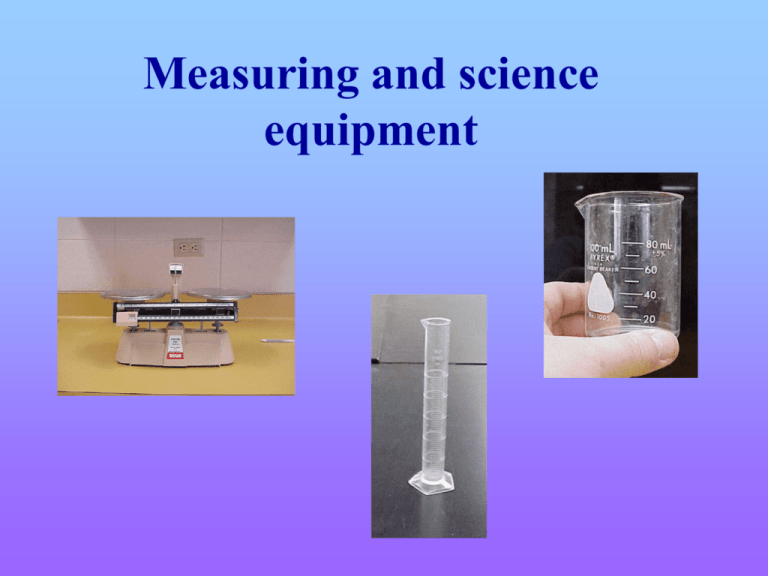
Measuring and science equipment Using a balance Object to be measured goes on the left side If you need to add more mass, place masses on the right side. Move the sliding masses until the needle lines up. Be sure to look at it straight on. Add the two scales together. What would this mass be? A gram (g) is a unit of mass equal to about a small paperclip. There are 1000g in a kilogram. That’s a lot of paper clips!!! A kilogram (kg) is used to measure larger masses. A kilogram is a unit of mass equal to 1,000 g, which is about the mass of a cantaloupe. Volume • Use a graduated cylinder. • Measures in milliliters • 1000 milliliters is 1 Liter • Always read at eye level. Water in a glass graduated cylinder forms a meniscus. The water forms a sort of curve at the surface Meniscus- always read from the lowest point on the meniscus. Length Centimeters millimeters A kilometer would be 1000 meters. Can you name these science tools? Beaker Balance Graduated cylinder Test tube thermometer Water freezes at 0°C. Water boils at 100°C. Normal body temperature is 37°C. Room temperature is about 21°C. A very hot day is 32°C. Science Vocabulary: Scientific Problem Solving Variables •Factors that change Data •The measurements and observations you make during an experiment. Conclusion •Statement(s) that explains results. • Example: The more light you give a plant, the taller the plant will get.
